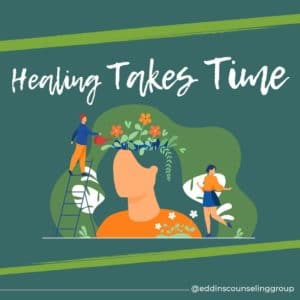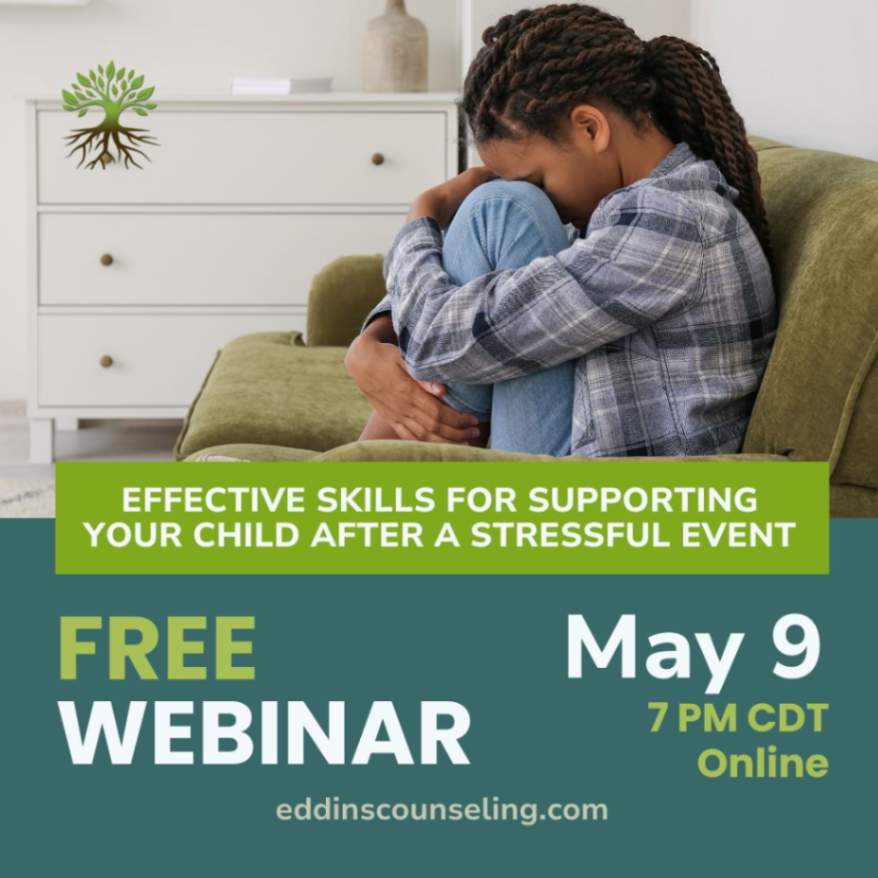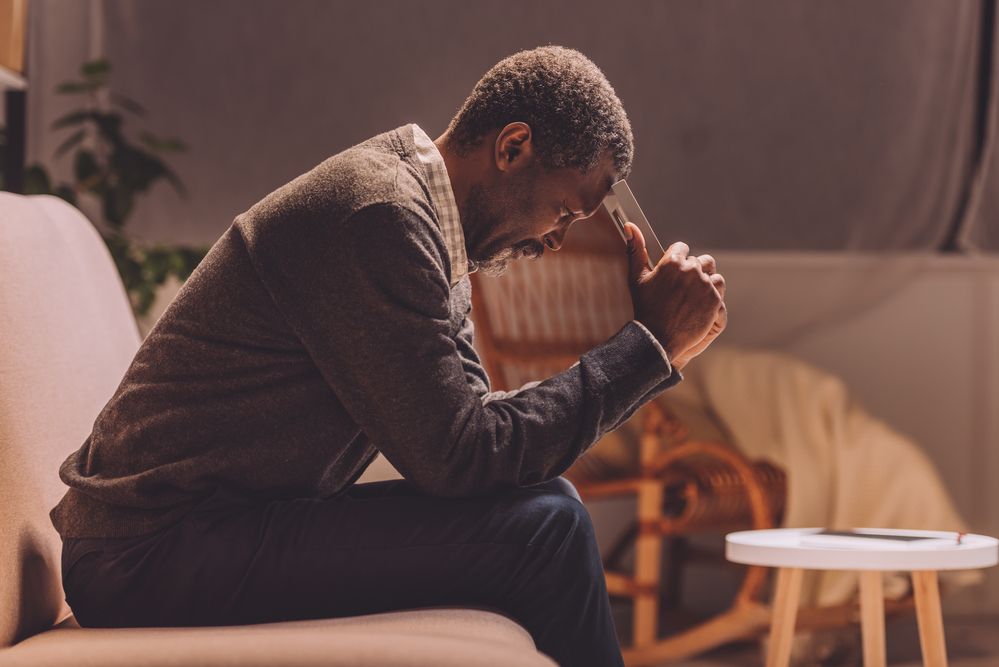December 14, 2020
How to Heal this Holiday Season
Written by Sara Lane
Posted in Emotional & Mental Health, Trauma, Grief & Loss and with tags: Holidays, mental health
Therapists often handle situations that call for healing, and the holiday season is no exception.
This “special time” will be increasingly difficult for many Americans following the year we’ve had. So, our counselors put together comprehensive strategies to help you heal this holiday season, whether that be from negative self-talk, codependent relationships, grief, loss, and trauma, or even just unresolved resolutions from years past.
These issues can make peace and joy that people usually associate with the season seem somewhat elusive. For many, thinking of the holiday season brings up negative feelings. Some may miss loved ones that have passed away.
Others may have to come in contact with relatives who can be controlling, insensitive, or insulting. Food and treats are everywhere, making someone coping with an eating disorder feel like they are in a combat zone.
But what if there was a way to neutralize those negative feelings? Could there be a way to make the holidays joyous and compassionate rather than insufferable and miserable?
Now, ask yourself, what do you need to renew, refresh, and connect this holiday season? We know that stressful situations come in many forms.
And despite the intention of connection, goodwill, and peace, the holidays can often be a hectic, over-scheduled, stressful time. Combine that with COVID-19, and well, talk about stress.
We recommend that you start your holiday season off by committing to yourself this year. Remember, self-care is not selfish. Self-care is what allows you to be present and available to yourself as well as others.
Coping with Negative Self-Talk
Rick Hanson, a neuropsychologist, describes our brains as hard-wired for negativity. He believes the brain is constantly seeking safety, satisfaction, and connection.
Accordingly, the brain readily seeks out negative experiences to point out the danger in our physical safety. These experiences stick to us like Velcro while our positive experiences slip right off us.
It is protective but can often get us stuck in a reactive state and veering toward negativity.
Likewise, the holiday season and all the media hype that accompanies it forces us to take stock of our lives and what we have accomplished over the past year, causing us to beat ourselves up with what if’s and I should statements. And our brains will likely cycle these negative thoughts around like a toy train.
If taking an inventory of the past 11 months or so of your life sends your self-esteem level downward, try looking at your situation differently.
This year has not been an easy one. You have faced an incredible amount of adversity, and some plans likely got derailed along the way.
Consider where you are now. Focus on what you can do with what you have, rather than what opportunities you may have lost.
If you can’t get around that inner critic, perhaps it might be time to try out some different perspectives.

Last Minute Resolutions for 2020
- Be kind to yourself. The golden rule might be to treat others as you would like to be treated, but sometimes we need to treat ourselves as kindly as we treat others.
- Practice self-compassion and self-forgiveness. If you haven’t accomplished one of your goals, that’s okay. Try adding these three little letters, Y-E-T, to your life, it’s a magical, tiny word that can make a huge difference.
- Focus on what you’ve overcome. Maybe you’ve experienced setbacks, losses, and disappointments, but – if you’re reading this, then that means you survived all those bumps in the road.
- Replace the negative self-talk with positive self-talk statements. Quiet the critical voice and amplify the supportive one. You wouldn’t speak to a friend this way, so why do it to yourself? Does it feel good, motivating, or inspirational? If you answered with “no,” it might be time to shift your narrative.
- Spend time in the present. While learning from the past is essential and valuable, dwelling on it can lead to feelings of regret and shame. Accept that the past is behind you and savor the moments you have in the present moment.

Our team handles negative self-talk regularly, and they know that healing doesn’t come from mentally beating yourself up. Allow yourself the understanding and compassion you would dole out to friends and family who may be struggling.
This is a time like no other, so the expectations you have set may need some readjusting. The inner critic could undoubtedly use a holiday.
Click to read more about cultivating gratitude or how to reduce stress this holiday season.
|
|
Healing from Trauma During the Holidays
Trauma is an increasingly common and challenging subject to discuss, and during the holidays, even the oldest trauma can come bubbling to the surface. The American Psychological Association describes trauma as “an emotional response to a terrible event.”
 What is considered a trauma can be different depending on who you ask, but “a terrible event” seems pretty universal. The APA goes on to say that “some people have difficulty going on with their lives.”
What is considered a trauma can be different depending on who you ask, but “a terrible event” seems pretty universal. The APA goes on to say that “some people have difficulty going on with their lives.”
When someone is traumatized or not parented as needed, codependent relationships become a very logical response.
Codependency is “giving to another that which we most want but can’t give ourselves: acceptance, connection, love, and understanding.” This giving can often enable dysfunctional behavior in the other person, such as substance abuse or worse.
Patricia O’Gorman, Ph.D., and Philip Diaz, MSW, explained the way we often respond to trauma and how to heal in their book Healing Trauma Through Self Parenting: The Codependency Connection.
|
|
12 Principles of Healing from Trauma and Codependency
The trauma that you suffered is specific to you. Therefore, your healing is, too.
Consider all of these ideas, but keep in mind that while some are acceptable to your situation, others might not be. That is okay.
You are a unique individual, so be sure to take what works and leave the rest.
1. Healing Takes Time
Let’s face it; it took a while for you to get where you are. Likewise, your recovery will also take time.
Give yourself the gift of allowing this process of healing through self-parenting to unfold for you. Know that your healing can’t be rushed.
It’s a process, not an event. What is important is that it has begun.
2. Healing Is Not Linear
Healing, like the development of trauma and codependency, is not a rational process. It involves all parts of the body and spirit.
Therefore you can’t plan to go from point A to B to C. The healing of trauma and codependency is more like healing a bad injury, proceeding more randomly than hoped for but certainly taking its path.
3. The Mind and Body Act as One
Our body and mind are connected. What we do or change in one area changes the other.
Even though you may live in your heads, your body knows what is happening. This has particular implications for trauma survivors because even though memories of trauma may not easily be retrieved verbally, the body may have stored these.
This is why a smell, a touch, light moving in a certain way can trigger you into not necessarily verbally remembering but physically reacting. This needs to be respected, and understood, with a plan developed for handling this.
4. Reparative, Restorative, Self-Soothing Experiences Are Key
To heal, we need to be active, not just in terms of insight garnered through therapy and meetings, but through actions in which you learn to calm yourself, and through experiences in which your positive sense of self is restored, and negative attributes are repaired.
|
|
5. Changing Your Actions Changes Your Thinking
That old adage: Fake it till you make it, is key. Our actions can help to change our thinking.
And our activities can keep us safe even if our thinking is still fuzzy. So carefully go out and make some positive changes.
6. Allow Rather than Force
Sometimes you can become excited about recovery, so excited that you’re going to force yourself to do what you need to do. While making positive changes is what it’s all about, it’s essential that change not occur at the expense of how you feel.
It’s important to encourage the heeding of the lessons that need to be learned. Garner the insights that need to be gained.
Take the actions that need to be taken. Conceive this understanding by allowing yourself to know how you are feeling.
Knowing how they feel can be quite challenging for those with trauma and codependency, but an important one. This is what needs to drive decision-making and can only occur by slowing down and owning your feelings.
7. Own the Power of Our Nonverbal Communications
As important as verbal communication is, it is equally important to embrace how we nonverbally process trauma and codependency. This involves the healing power of the creative part of our brains to sense, depict, and communicate using images, color, movement, sound.
Can you draw, sing, dance, make music to describe your feelings and solutions rather than solely discussing them? It is well worth finding out.

8. Embrace D.E.F.—Diet, Exercise, & Fun
Yes, fun. Embracing DEF is a crucial way to integrate mind and body.
Part of the recovery from trauma and codependency is to move back into your body. For those who have been dissociating or depersonalizing, this will be more of a challenge, but an important one.
Having fun, using your body to move, exercise, and care about what you put into your body, your diet—from food to decide whether you decide to consume alcohol is vital.
Also, exercise helps grow the parts of the brain that will allow for learning and change.
9. It’s Good to Slow Time
Learning how to be in the present, self-soothe, and slow one’s responses are vital to recovery. This is particularly important when you are experiencing triggers.
A key component in learning to self-soothe is to know how to slow time. This is a skill that can be taught and practiced.
Simple strategies such as moving more slowly, speaking more slowly, and driving a little under the speed limit, can provide a powerful boost to your ability to make changes in their life, as can learning to be in the present, in their sensing mind, and move away from the chatter in your head, your narrative mind (Siegal, 2011).
10. We Can Give Our Trauma Away
Spirituality is a significant component of recovery.
In developing a renewed belief in a force greater than ourselves, we can experience transcendence, the ability to be lifted above the present moment, and into that space where we can share our discomforts with another, literally giving them over to be managed.
Whether this is a deity or the group is not important. What is important is that you feel a space between your pain and yourself to process what is occurring, a powerful tool in the recovery arsenal.

11. Sometimes We Need a Pharmacological Assist
Yes, sometimes, in dealing with trauma, medication is needed. The severe stress associated with trauma can result in the brain requiring prescribed medication to bring it into balance.
Many people subconsciously know that they have a biochemical problem and begin to self-medicate by drinking more heavily or starting to self-medicate with drugs.
Needing medication is not a failing, even though some will see it this way. If prescribed, taking medication is a really smart and courageous thing to do.
12. Don’t Take It Personally
As recovery takes hold and people begin to change, others will notice this change and, perhaps, not like it. It is highly recommended that you Don’t Take It Personally, which is very difficult for someone with codependency to do, but essential for your mental health.
Understand that the reactions that we receive from others are often more about them and less about us. Taking how others react to us personally reinforces codependency, which encourages our being responsible for the other.
It Doesn’t Need to be Perfect.
We often hope that the holidays will bring connection and love. For many, it brings toxicity and triggers.
During this holiday season, which has been entirely altered by COVID-19, we ask you to be patient with yourself.
Our therapists recognize that this season will be a unique experience. And it does NOT need to be perfect.
You don’t have to heal every trauma, you don’t have to buy the most amazing gifts, and you don’t need to act like it’s all okay.
You have experienced a time like no other, and this holiday season is likely to follow suit. If you find you are one of those people struggling right now, consider giving yourself the gift of self-love and parenting with these steps.
Allow these strategies to provide some support during this period of time.

Have Peace and Joy Last All Year
The holidays are a time rife with old trauma, emotional pain, and bad experiences that usually come hand in hand with the good. As you enter this season, remember that you are not alone. Everyone will handle this season differently.
Our team of counselors put together a list of ways to help you do the best with what you have. And the fact is when we feel peaceful and joyous, it improves our whole life, even the hard parts.
That is a benefit that we should not just reserve for special times of the year, like the holiday season. It should be part of each day of our lives.
Use these tips as a guide to navigate the harder times of the “most wonderful time of the year” and expand the best parts.

- Appreciate what you have. Gratitude is excellent for promoting joy – practice it daily. Let go of what is bothering you and make a conscious effort to focus on what you have, not what you don’t have. Keep a written record of what you’re grateful for and journal about the good things happening to you every day.

- Give yourself a break. Stop beating yourself up when struggling with imperfections. Stay calm. Learn to observe your thoughts and emotions without judging. If you find yourself in a situation where toxic emotions, tension, stress, and conflict arise, strive not to be overly anxious and maintain your inner peace.

- Focus on the good and positive. Thinking of positive things generates feelings of love and appreciation. Of course, you can’t eliminate all negative things from your life, but you can limit your intake of them. Choose well recovery and aim to respond peacefully to negative situations or people. The peace and optimism you radiate can be contagious.

- Adjust your expectations. Always worrying that you’ll fail will make failing more likely. But if you lower what you require of yourself, you can increase your joy. Be modest and learn to do the best you can, not taking on unrealistic responsibilities.
 Be more understanding of yourself and others. Empathy brings peace. It establishes an emotional bond between people. So, strive to become a peacemaker, actively promoting peace with others. Approach every situation with peaceful intent, reasonableness, and mildness. Show that you value your relationships with others by being forgiving, quick to make amends, and displaying self-control.
Be more understanding of yourself and others. Empathy brings peace. It establishes an emotional bond between people. So, strive to become a peacemaker, actively promoting peace with others. Approach every situation with peaceful intent, reasonableness, and mildness. Show that you value your relationships with others by being forgiving, quick to make amends, and displaying self-control.

- Connect with people – just because. Make time for people. Be generous and have friendly and upbuilding conversations with others – family, friends, or even people you don’t know. Do something for someone in need, like helping a neighbor or doing volunteer work. You’ll experience the joy of giving— especially if you do it without expecting anything in return.
 Seek to respond in new ways. Automatic responses keep you from renewing yourself and being open to new possibilities. Pause a moment, think, and open your eyes. Step outside your limited awareness, and learn to live in the now—approach new situations and people with a child’s curiosity, willing to explore new prospects and adventures.
Seek to respond in new ways. Automatic responses keep you from renewing yourself and being open to new possibilities. Pause a moment, think, and open your eyes. Step outside your limited awareness, and learn to live in the now—approach new situations and people with a child’s curiosity, willing to explore new prospects and adventures.
If you endeavor to put as much effort into finding peace and joy all year as you may put into it during the holiday season, you’ll surely reap the benefits. It certainly isn’t a vain pursuit – it’s something that will enrich your life without any repercussions.
Holiday Healing
Keep in mind that this year has been difficult. This level of adversity you have encountered over the past 12 months may have been unlike any other, but that doesn’t mean we get a pass on the usual challenges of life.
Trauma comes in many forms and takes its own path out.
So, for the holidays, consider following the HEAL process. Have a good experience, Enrich the experience, Absorb the experience and one day link the experience with a negative one to always know that you can have happy holidays despite annoying relatives and painful memories.
You may not experience a complete healing transformation this holiday season, but you can take the first step. Be honest with yourself about the hurdles you face. Perhaps, the help of a trained psychotherapist can be useful in learning this process.
Give us a call at 832-559-2622 or click here to book an appointment online. Our counselors in Houston are ready to guide you to a freer and more satisfied you!
Grounding & Self Soothing
Get instant access to your free ebook.
Why You Feel This Way
Get instant access to your free ebook.






























